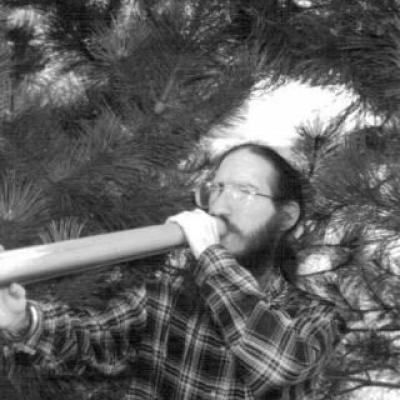


INTRODUCTION
Among the credentials available to ministers of the Universal Life Church Monastery is the honorary Doctor of Divinity degree. There are more than one website affiliated with our church, and they describe the degrees slightly differently sometimes; as of this writing, the description on themonastery.org describes this degree as marking one's completion of a self-guided study. In order to help fellow ministers who may wish to embark on self-education in Divinity studies, I am compiling a list of resources (online and offline) that may be useful. Chances are that any particular individual will want to pick and choose things that fit their specific needs. I expect this to be a work-in-progress for some time, perhaps even open-ended, so do feel free to occasionally check for new additions.
Some may wonder why we should bother, since the church does not test our knowledge but simply awards the degree upon request, and a fee for the physical certificate and its calligraphy. If you claim the degree, people will naturally expect you to know what you are talking about, to have a significant level of knowledge in religious and spiritual matters. Furthermore, if a person who has a Doctor of Divinity from our church is found to lack knowledge, that will diminish the value of the degree, honorary though it may be, and harm the reputation of the church and its ordained ministers.
Therefore, it shows honor and integrity to first study, then claim the degree; or if one has already gotten the degree, without having made any study, then one can always start now, and grow into it, so to speak. Some ministers come to the church having already graduated from a traditional seminary or other form higher religious education; certainly that would qualify one to claim the degree as well; but since in most cases, that education will have focused on their own religious tradition, they may wish to supplement it with studies in other traditions. I would also love to see such highly-educated ministers sharing their suggestions and expertise with other ministers. All of us in any status... even ministers who have no intention of claiming the DD degree... can and should keep learning. I hope everyone may find something helpful here.
In the rest of this article will be found: Preliminary Suggestions; resources for general overviews of religion; and resources for focused study of individual traditions [forthcoming].
SOME PRELIMINARY SUGGESTIONS
1. Try to make a habit of studying every day. If that's not possible, make a schedule that does work for you.
2. Since we are part of an interfaith spiritual organization, many may find it wise to take a two-pronged: naturally, if we have a specific religious or spiritual belief system, we should develop a particular expertise in its teachings; and we should also honor the interfaith nature of our church by developing knowledge of other traditions.
3. Consider learning, if applicable, original languages of one's own scriptures, or even those of others. This is both a sign of sincerity and dedication, and pragmatically usually allows one much better and deeper understanding and appreciation of the sacred texts.
4. Fellow ministers can be good resources; make a point of reading what others write and post on this site, and by the same token, share your own knowledge. Some ministers may be willing to help each other with questions and answers, and other personal instruction.
FIRST STEPS: GENERAL OVERVIEWS
Aside from what we may already know, especially about our own belief system, a good first step is to seek out a basic knowledge of many traditions. From that foundation, we can find what else to look for, questions to ask, etc., toward gaining greater knowledge on other religions, especially those unfamiliar to us.
For a ULCM minister, doubtless the most natural starting point would be the church's own "Guide to Divinity" book, which provides summaries of a wide range of belief systems.
The ULCM bookstore sells a good selection of books, including one or two others giving more in-depth overviews, so consider shopping there before going elsewhere.
My favorite general religious reference work is The Perennial Dictionary of World Religions, edited by Keith Crim. It includes more than 800 pages of in-depth information on world religions.
One way to keep abreast of current issues and thoughts in the world of religion is to regularly peruse the religious blogging site, Patheos.com. In addition, the site has a "religion library" section that provides overviews of many religions, so reading through that section is another way to further your general religious education.
When you want to study sacred texts, there are many online resources. I will share examples specific to particular religions or organizations in the following sections [not yet available, please check back]. For now, good general sources include Sacred-texts.com and the Internet Archive. The Archive is a collection of resources from many types of media, from all fields and genres; that includes religious works. Many organizations have provided entire collections to be freely read or downloaded there.
[Forthcoming: sections for resources on specific religions and traditions.]